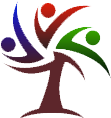
" Fostering intercultural hearts and minds:
Applying intercultural research for a sustainable future "
Welcome to the 12th IAIR Conference in Rapperswil-Jona, Switzerland from 23-28 July 2022
(Fellows Day and PhD Workshop on Sunday, 24th of July)
News
News

The countdown is on! - UPDATE 11th July 2022
Less than 14 days and the 12th IAIR conference is open! An exciting conference program is waiting for you! And also Elvis, our university cat, is waiting in front of the future poster hall to get company again after the students have left for their summer vacations.
We wish you a pleasant journey and look forward to welcoming you in Rapperswil (SG) or online. To make sure you arrive safely, please study the travel instructions on our website.
To all presenters: Please upload your videos and presentations to our server by July 15. You have already received an email with instructions for presenters.
You will all receive another email with a link to the virtual conference platform and the technical instructions in the next few days.
If you want to display your new publications to other conference participants, please pack them in your suitcase. We will have an intercultural book table set up for the duration of the conference.
Temperatures will probably be quite hot during the conference. So don't forget your bathing suit, because a swim in Lake Zurich is very refreshing and can cool down the strained brain a bit. The lake is right outside the conference doors.
We are looking forward to seeing you in Switzerland!

Book your accommodation for the conference now! - NEWS 12th May 2022
Our conference takes place in high season and Rapperswil-Jona is a popular but small town with limited hotel room capacity. Therefore, from week to week it unfortunately becomes more and more difficult for us to maintain the room contingent reserved for the conference.
So do not hesitate to reserve your room at the Sorell Hotel (before 16th May!), the Moxy Hotel, the Seedamm Plaza, or the Hotel Jakob via our conference website.
For students and participants from low income countries or participants with financial needs we also still have capacities in a nice budget accommodation near the conference venue. Reservations can only be made by email to the conference office:
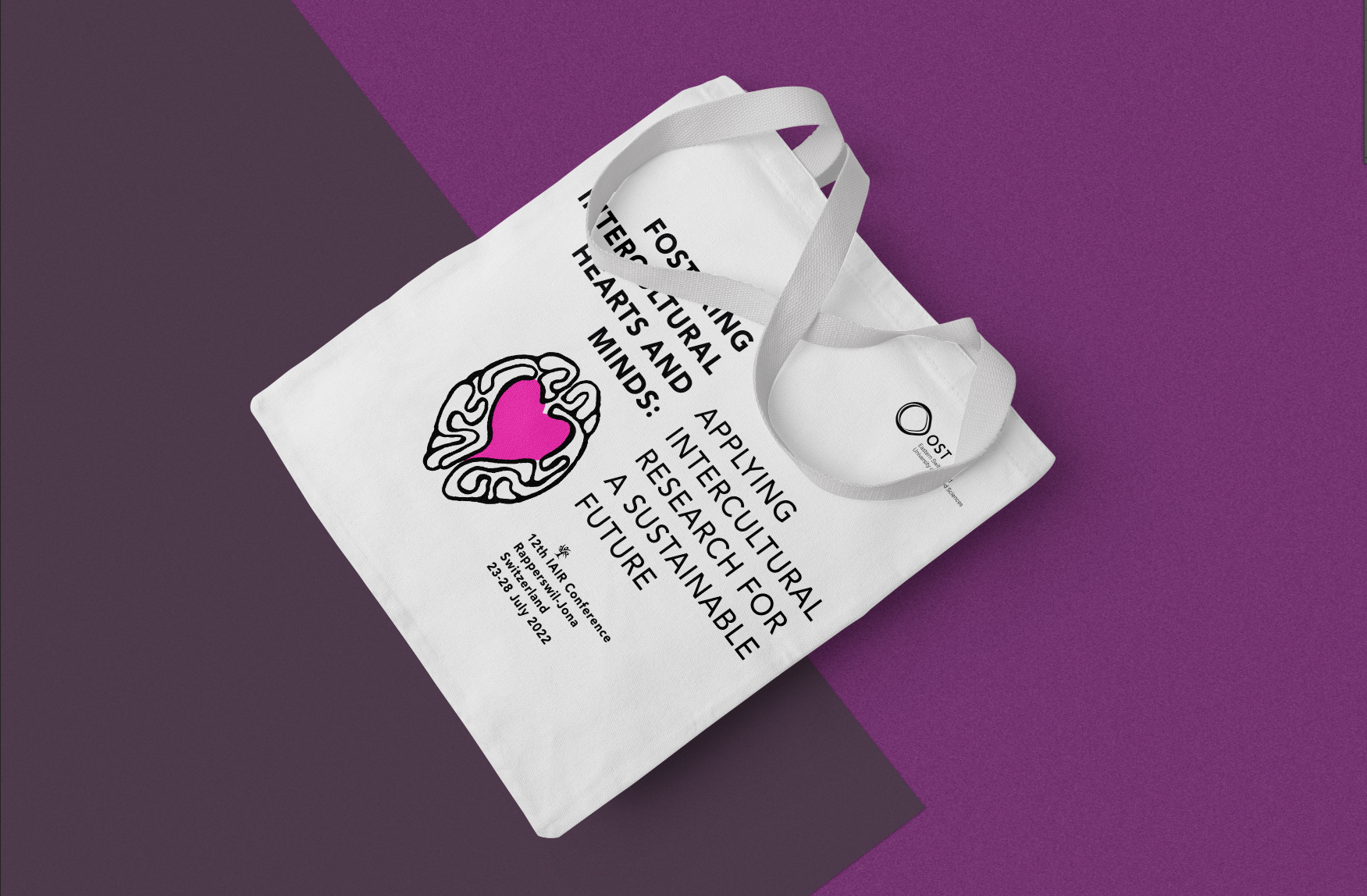
Two days left for Early Bird - Update 28 April 2022
Dear members of IAIR and all Interculturalists
Two days left! Don't waste any time and grab your conference bag! On 30.4.22 the Early Bird phase ends to register at reduced fees for our conference "Fostering intercultural hearts and minds: Applying intercultural research for a sustainable future" at Eastern Switzerland University of Applied Sciences in Rapperswil-Jona, Switzerland
Click here to registerYou can meet and chat with renowned colleagues in a relaxed surrounding. Our past, current and future presidents such as David Sam, Steve Kulich, Adam Komisarof, Nan Sussman, Ken Cushner, and Saba Safdar as well as our Life Time Achievement Awardees such as Colleen Ward have already registered, only to mention a few. There will be many more to follow. And you will have the chance to listen to inspiring keynote speeches from Linda Steg, one of the leading authors of the IPCC climate report and one of the most influential and innovative pioneers of Environmental Psychology, or from Hans Kuenzle, the president of UNICEF Switzerland.
The programme includes 15 exciting symposia, nearly 100 talks and 30 posters, convivial social events, a rich cultural programme and an exceptional conference banquet. If you are starting your academic career with an intercultural PhD programme, the IAIR PhD Workshop is for you. Register for the hybrid workshop (online + on campus) led by experienced researchers such as Nicolas Geeraert and Rui Zhang.
Finally: Please do not hesitate to make a reservation for your accommodation! We have allotted rooms in the hotels on our website, but we can't keep them too long because end of July is high season in Switzerland. We are looking forward to meeting you in Rapperswil-Jona, Switzerland!
Warm regards
Stefan Kammhuber (Conference Organizer)
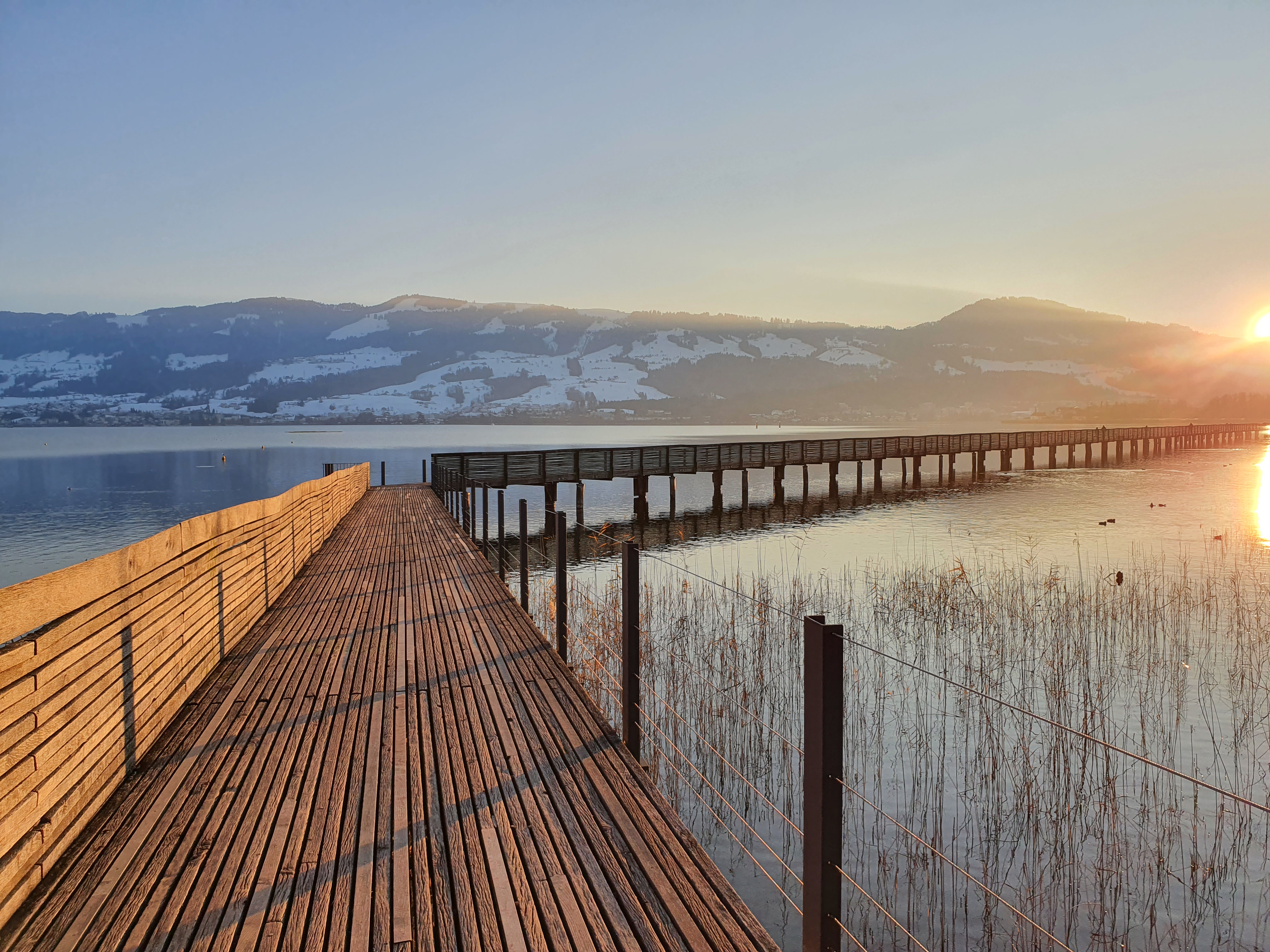
Conference 2022 Update 1 April
We are delighted and grateful that the IAIR Board has decided that we can hold an in-person conference in Rapperswil this summer and thus can enrich our digital contacts with 'real' life experience and exchange!
As glad as we are about this decision, we are horrified about the immeasurable suffering of the Ukrainian people caused by the brutal invasion of the Russian President. The motto of our conference "Fostering intercultural hearts and minds - Applying intercultural research to a sustainable future" could not be more relevant, because war is the opposite of a sustainable future. It shuts hearts and minds, tears families apart and extinguishes lives. It destroys cultural heritages, buildings, infrastructure, and resources, wipes out collective memories, trust, and relationships. But it is precisely in these dark times that we as intercultural scholars are especially challenged to lay the foundations for peaceful coexistence, based on the will and ability for mutual understanding and ongoing communicative exchange. For war begins where communication ends.
Therefore, we would like to offer a peaceful environment in Rapperswil in July for a conference in which we meet with open hearts and future-oriented minds in order to work on the burning issues of our times.
We will make sure that Covid rules are followed so that everyone can feel safe. In Switzerland, the Covid rules have now been abolished by the government. However, we are aware that there are different needs internationally to feel safe in terms of health. Therefore, the IAIR Board has issued special recommendations on how we will deal with Covid at the conference. These regulations are available on the conference website and will be continuously adapted to the current situation.
For those who cannot come to Switzerland due to health/financial reasons or travel restrictions, we have set up a virtual option that will allow them to join us in the lecture rooms via live streaming or to give their presentations online.
Similarly, the IAIR Board has adopted a code of conduct for social behavior at both digital and in-person situations so that everyone can feel comfortable at the conference. This code of conduct is also available on the conference website.
Soon we will also publish the conference program here.
Please register early to benefit from our Early Bird options until 30 April, 2022.
We are very much looking forward to welcoming you in Rapperswil in July and working with you towards a better world.
See you in Switzerland!
Stefan Kammhuber (Conference Organizer)

Update on Biennial Conference
Fostering intercultural hearts and minds – Applying intercultural research for a sustainable future 23-28 July 2022, Rapperswil-Jona, Switzerland
In Switzerland, now the quiet time begins, when the snow covers the paths and the noise of the roads gives way to the quiet crunching underfoot. For the 2022 conference and the Scientific Committee, however, it is the beginning of a very busy period. We have to sort out the many exciting submissions for symposia, individual papers and posters and create an interesting conference programme from them. Obviously, the conference in Rapperswil-Jona has aroused great interest, for which we are already very grateful. Preparations for the PhD/Early Career Workshop and Fellows Day are also already underway, so that the pre-conference programme will also be an exceptional joint learning experience. We will be able to listen to the speeches of our award winners on their outstanding intercultural research, e.g. Lifetime Award Winner Prof. Colleen Ward from Victoria University of Wellington, New Zealand, as well as inspiring keynotes on the "burning issues of our time". We are proud to present in this keynote series for example Prof. Linda Steg, Professor of Environmental Psychology at the University of Groningen, Netherlands, who is also the lead author in the IPCC Special Report on 1.5° for the chapter "Strengthening and Implementing the Global Response to the Threat of Climate Change". She has done extensive research on strategies aimed at promoting sustainability worldwide. On our conference website we will keep you informed about the program development. So stay tuned! After so many months in the pandemic and the still unpredictable global situation, many are understandably concerned about whether travelling will be possible and safe again. The IAIR Board is continuously monitoring the situation and will decide on the format of the conference in mid-February. The desire of many is to meet in person again and feel the sense of our IAIR family physically and beyond Zoom/Teams again. The organisers would like to offer an event in which the participants can not only discuss matters academically with each other at a high level, but also experience the beauty, culture and products of Switzerland in the cultural programme. For those who cannot travel for personal reasons, we will create opportunities to participate virtually. If the Covid situation in mid-February makes an in-person conference too risky, we will of course switch to a full digital format and design an attractive program. May the holiday season cap the present year on a cheerful note and make way for a fresh and bright New Year with open intercultural hearts and minds. Have a happy holiday! Stefan Kammhuber
Welcome
“Grüezi mitenand!” (Swiss Greeting)
After two years of a forced break by Covid 19 where many of our contacts took place exclusively virtually we are looking forward to experiencing with you a "real" conference after the amazing Shanghai 2019 experience! Please join us as we come together to share the latest findings from intercultural research, to learn from each other, to discuss and to find answers to the burning questions of our time. And of course, to enjoy being together once again!
For this purpose, we humbly invite you to come to the Eastern Switzerland University of Applied Sciences in Rapperswil-Jona (close to Zurich), beautifully located directly on Lake Zurich with a stunning mountain view where you can let your mind flow through the clean air of the near Alps or have a swim in the lake during the conference breaks.
While we all are optimistic at heart, we will very carefully follow the developments of the pandemic around the globe to adjust the character of the conference accordingly if needed.
We look forward to welcoming you in Rapperswil-Jona, Switzerland! If you have any questions, please do not hesitate to get in touch with us via email:
Stefan Kammhuber (Conference host & IAIR Fellow)
Conference Organizer

IAIR
Formed in 1997, the International Academy for Intercultural Research is an association of about 250 scholarly Fellows and Members focused on intercultural research in varied disciplines worldwide. IAIR’s mission is to encourage the highest quality empirical research and practice aimed at understanding the ways in which cultures interact, primarily through biennial meetings and publications, like its flagship International Journal of Intercultural Research (IJIR).

Eastern Switzerland University of Applied Sciences (OST)
Established in 1972, the Eastern Switzerland University of Applied Sciences (OST) focuses on applied research and the education of “reflective practitioners” for a broad range of disciplines. The University also harbors the “ikik- Institut für Kommunikation und Interkulturelle Kompetenz” (Institute for Communication and Intercultural Competence) which serves as host and organizer for the IAIR conference.
Program
Program

Program of the 12th IAIR Conference (tentative)
We are very pleased to present you the program of the 12th IAIR Conference. Please keep in mind that this will be updated and adapted continuously as we get closer to the conference – but we wanted you to see that exciting range of sessions that are in place!
You can access the Program At-a-Glance and the Full Program at:
See Program At-a-Glance See Full Program23rd
July 2022
IAIR Board Meetings
24th
July 2022
PhD workshop & Fellows Day
25th - 28th
July 2022
Conference
- 25th: Conference Opening (9:00am)
- 27th: Conference Dinner (Evening)
- 28th: Conference Closing (12:30pm)
Keynotes & Award Sessions
KEYNOTE SPEECHES & AWARD SESSIONS
We live in a time when humanity faces multiple challenges. Some of them threaten the entire planet, such as climate change. But our human coexistence is also endangered by wars, social polarization, the resurgence of nationalistic thinking, and heated communication in which listening and mutual understanding often fall short.
We are therefore very pleased to welcome our excellent keynote speakers and IAIR awardees at this conference who will show us ways to master these challenges in order to shape a peaceful and liveable future for us and our descendants

Dr. Hans Künzle
"For Every Child – The Role of Intercultural Understanding in UNICEF’s Work"
Read more
Prof. Dr. Colleen Ward
“A Lifetime of Acculturation Theory and Research: Looking Forward and Looking Back”
Read more

Prof. Dr. Dan Landis & Prof. Dr. Dharm P. S. Bhawuk
The Cambridge Handbook of Intercultural Training (4th Edition)
Read more
Prof. Dr. Jonas R. Kunst
Investigating intercultural relations and acculturation in the age of superdiversity
Read more
Jun.-Prof. Dr. Miriam Schwarzenthal
Considering cultural diversity AND social inequity: Adolescents‘ intercultural competence and critical consciousness in societies of immigration
Read moreProf. Dr. Linda Steg

Prof. Dr. Linda Steg
Linda Steg is professor of environmental psychology at the University of Groningen, Netherlands. She studies factors influencing sustainable behaviour, the effects and acceptability of strategies aimed at promoting sustainable behaviour, and public perceptions of technology and system changes. She is a member of the Royal Netherlands Academy of Sciences (KNAW) and the European Academy of Sciences and Arts. She is laureate of the Dutch Royal Decoration with appointment as the Knight of the Order of the Netherlands Lion, and laureate of the Stevin prize of the Dutch Research Council. She is lead author of the IPCC special report on 1.5°C and AR6, and participates in various interdisciplinary and international research programmes in which she collaborates with practitioners working in industry, governments and NGOs.
Intrinsic Motivation to Engage in Climate Action
Climate change is caused by human behavior and can thus be reduced when people would more consistently engage in climate action. Many approaches to encourage climate actions target extrinsic motivation, by offering incentives that change personal costs and benefits of behaviour. I will explain why such approaches are not always as effective as assumed. Next, I will indicate that it is also important to foster intrinsic motivation to engage in climate actions, as intrinsically motivated people act without being coerced or incentivised, even when climate actions are somewhat costly, as doing so is meaningful and makes them feel good. I will discuss which factors can strengthen individuals’ intrinsic motivation to engage in climate actions, including biospheric values. I will discuss to what extent people across the world endorse biospheric values, how biospheric values can promote climate actions, and under which conditions this is most likely to be the case.
Dr. Hans Künzle

Dr. Hans Künzle
President UNICEF Switzerland - Liechtenstein
Dr. Hans Künzle is Chairman of UNICEF Switzerland and Liechtenstein, as well as Chairman of UNICEF's 33 national committees, which he advises. With a PhD in law from the University of Zurich and many years of international executive experience, Hans Künzle is an expert in linking NGOs and all types of private sector companies worldwide. He is also a member of the Executive Board of the Institute for Management & Strategy at the University of St. Gallen and Vice President of Helvetia Group. Hans Künzle is convinced that education is an essential prerequisite for human beings to develop. And this is particularly important for children and young people.
"For Every Child – The Role of Intercultural Understanding in UNICEF’s Work"
UNICEF employs 13,000 people worldwide and is present in 190 countries. Being faced with intercultural questions is daily normal.
UNICEF’s powerful, strong mission “Being there for every child” is a crucial part of our DNA which shows in everything we do. Only the children's needs are in the center of our attention, regardless of race, ethnicity, gender and sexual orientation.
First, I will introduce UNICEF as a global organization and illustrate our intercultural understanding in our daily work.
Based on a current project in Armenia on gender-biased sex selection, I will show which measures have been taken to protect girls and young women as well as how public awareness is raised on this issue.
I will conclude with UNICEF’s main intercultural learnings in its work.
Prof. Dr. Colleen Ward

Prof. Dr. Colleen Ward
Lifetime Achievement Award
Colleen Ward FRSNZ is Professor of Cross-cultural Psychology and Founding Director of the Centre for Applied Cross-cultural Research at Victoria University of Wellington in New Zealand. She is current President of the International Association for Cross-cultural Psychology; past President of the International Academy for Intercultural Research; and a former Editor-in-Chief of the International Journal of Intercultural Research. Colleen has worked both with both government departments and NGOs in New Zealand on issues relating to integration, immigrant well-being and social cohesion; for this and her scholarly research, she was awarded the Te Rangi Hiroa Medal by the Royal Society of New Zealand in recognition of her contribution to the psychological study of immigration, acculturation, intercultural relations and cultural diversity. Colleen is currently a Visiting Fellow at the Institute of Advanced Study, Durham University.
Acculturation Theory and Research: Looking Forward and Looking Back
On the occasion of my Lifetime Achievement Award I reflect on the evolution of acculturation theory and research over the last three decades and consider the ways in which I may have contributed to its advancement. At the same time, I describe some of my more recent collaborative research on cultural identity styles and normative multiculturalism, which I hope will become embedded in the field over time. In these reflections I recognize that I stand on the shoulders of giants and acknowledge those who have had great influence on my work. I also note how young scholars are currently advancing our field.
Prof. Dr. Dan Landis & Prof. Dr. Dharm P. S. Bhawuk


Prof. Dr. Dan Landis & Prof. Dr. Dharm P. S. Bhawuk
Best Book Award
Bio is coming soon
The Cambridge Handbook of Intercultural Training (4th Edition)
Abstract is coming soon
Dr. Ágnes Szabó

Dr. Ágnes Szabó
Early Career Award
Dr Ágnes Szabó is a Senior Lecturer in Health and a Rutherford Discovery Fellow. Her project, ‘Growing old in an adopted land’, focuses on the ageing experiences of migrant communities in Aotearoa. In her work, she integrates life course approaches and acculturation theory with critical gerontology and is interested in the social and cultural determinants of health and wellbeing.
Redefining ageing well in the context of migration
First, I will introduce my reserach programme ‘Growing old in an adopted land’ which centres on three interconnected themes. Theme 1 ‘Redefining ageing well in the context of migration’ explores the meanings migrants associate with ageing well and the sociocultural factors that enable or hinder migrants to live according to valued goals. Theme 2 ‘The challenges of transnational ageing’ focuses on issues related to transnational belonging, loss, and the meaning of place, particularly ageing in place, when home means two different countries. Theme 3 ‘Growing old together’ seeks to understand how culturally mixed couples navigate ageing and the extent to which intercultural marriages create unique pathways to ageing well and socio-cultural integration across the lifespan. In the second part of the presentation, I will present a focus group study I conducted with older migrants in Aotearoa from five communities (British, Chinese, Indian, South African, and Sri Lankan), and discuss findings specifically in connection with Theme 1.
Prof. Dr. Jonas R. Kunst

Prof. Dr. Jonas R. Kunst
Early Career Award
Jonas R. Kunst is a professor of cultural and community psychology at the University of Oslo. He completed his PhD in social psychology in 2016. During his PhD, he was a Fulbright scholar at Harvard University where he worked with Professor Jim Sidanius. After his PhD, he was a post-doctoral fellow at Yale with Professor John F. Dovidio as his mentor. His research focuses on acculturation, intercultural and intergroup relations, extremism, and animal-human relationships.
Investigating intercultural relations and acculturation in the age of superdiversity
The study of acculturation and intercultural relations has flourished over the past decades. Many sophisticated models and frameworks have been developed to explain how different cultural groups relate to each other and the changes this produces at the cultural and psychological levels. However, as I will describe, many existing models are limited as they (a) focus primarily on changes among minority groups rather than majority groups and (b) do not account for the cultural heterogeneity and complexity in most societies. New frameworks are needed, especially in times of "superdiversity," where former majority-minority distinctions are challenged. I will present some of our work on majority-group acculturation that focuses on a "forgotten" side of acculturation. With it, we aim to initiate a new generation of acculturation research that treats minority-group members as agents and majority-group members as recipients of cultural change.
Jun.-Prof. Dr. Miriam Schwarzenthal

Jun.-Prof. Dr. Miriam Schwarzenthal (Rae and Dr. Dan Landis Outstanding Dissertation Award)
Miriam Schwarzenthal obtained her Ph.D. at the University of Potsdam in Germany under the supervision of Prof. Linda Juang, Prof. Maja Schachner, and Prof. Fons van de Vijver. She is currently working as a junior professor for school socialization research in the School of Education at the University of Wuppertal in Germany. Her research examines how adolescents learn about cultural diversity and social inequity at school as well as in peer and family contexts and how these experiences contribute to their intercultural competence and critical consciousness.
Considering cultural diversity AND social inequity: Adolescents‘ intercultural competence and critical consciousness in societies of immigration
Increasing immigration-related diversity in many societies does not only go along with cultural diversity, but also with an inequitable distribution of opportunities and resources across people with different heritages and migration histories. I argue that for adolescents to live and thrive in these societies, they do not only need to learn to engage with cultural diversity (i.e., as in intercultural competence) but also to recognize and redress social inequity (i.e., as in critical consciousness).
I will present empirical findings from my dissertation research on adolescents‘ intercultural competence, as well as from my current research on adolescents‘ critical consciousness. By discussing central challenges that I encountered during my research, I aim to point out avenues for a further integration of the two research fields and for the future of intercultural research more broadly.
Presenters Hub
PRESENTERS HUB
Congratulations!
Your submission was accepted and you will present at the 12th IAIR Conference in Rapperswil-Jona, Switzerland!
Here you get instructions for ONLINE and ON CAMPUS presentations.
In our instructions for ONLINE presenter, we follow the best practices and recommendations of IACCP 2022 and our own experiences from IAIR 2021 . For the Poster Session we adapted the best practices and recommendations of APA 2022.
Please read the instructions carefully to maximize the impact of your contribution and to ensure that the conference runs smoothly. If you have any questions, please contact
We want to make IAIR's first hybrid conference the most enjoyable experience possible for everyone, whether on campus or online.
Instructions for ONLINE Presenter

Instructions for ONLINE Presenter
In order for the hybrid conference to run smoothly for all participants, please send us a pre-recorded video of your oral presentation in any case. You can also present your contribution live at the conference, but in case of technical problems, you and we are assured that your contribution will be successful.
One week before the conference starts, you will receive a link to the conference platform via email with further instructions.
If you have submitted a POSTER contribution, please provide us with a pdf/video of your poster (see furtherdetails at OnCampus Presenter/POSTER/ Virtual poster below).
Deadline for Submitting pre-recorded Presentation
By July 15th 2022, you need to have submitted your pre-recorded presentation following the technical requirements and recommendations listed below.
Late submissions will not be accepted.
In order for the videos to be processed and checked by our Technical Board, there is considerable urgency in preparing, finalizing and uploading your video no later than the above-stated deadline.
Upload your file
If you have created your video according to the following requirements and recommendations, please upload your file by July 15th using the respective link we have sent you in the instructions for presenters via email.
Requirements and recommendations for oral and symposia pre-recorded video presentations
TECHNICAL REQUIREMENTS
TECHNICAL REQUIREMENTS
- All videos must be in MP4 format (.mp4) from 720p up to 1080p resolution. If you use one of these recommended tools to create your video, it will meet the technical requirements: ZOOM, WEBEX, MS TEAMS.
- File size should not exceed 1GB for a symposium or 200MB for individual presenters
- Follow strictly 12 minutes length for individual oral presentations
- The recording must be provided in a single file
- Please use the following file naming convention:
- IAIR_paper_Name_FirstName.MP4
- IAIR_symp_Name_FirstName.MP4
- Examples 1: IAIR_paper_Kammhuber_Stefan.MP4
- Example 2: IAIR_symp_Kammhuber_Stefan.MP4
- Authors retain copyright to videos
- Ensure that you have the rights to use all the material that is contained in your submission.
- Do not upscale an SD video to HD resolution, as the quality would be poor
- The video must be formatted horizontally (i.e., landscape) The frame rate is flexible, as long as it’s consistent throughout the video. These are very common frame rates: 25, 29.97, 30, 59.97, 60. If you produce your video using one of the recommended tools, you do not need to attend to the frame rate
VIDEO PRODUCTION
VIDEO PRODUCTION
Please be sure your video(s) comply with the following instructions:
- The language must be English
- Please display the title slide long enough to be read (up to 5 seconds). The title slide should include your name, the presentation’s title, session title (if applicable), and all co-authors and affiliations.
- Recommendations for text on slides: o 7×7 guideline: A maximum of seven words per line and seven lines per slide will improve the communication value of your slide,
- Edit titles and long sentences to fit into only one line,
- Use only one sub-level,
- Boldface text carries more weight,
- Use color with purpose, not as decoration,
- Do not use footnotes,
- Use a sans-serif font (Arial, Calibri etc.) of at least 30 point size,
- Keep the content at least 50 pixels from the slide edges.
Incorporate the following information when recording your video, but feel free to adapt. (Remember to speak slowly and clearly!)
- “Hi! I’m [insert name] of [insert your organization name] and I am presenting [paper title] during the session [session title].”
- Once you have recorded your presentation, please remember to close out your session with a thank you to the audience, and inviting questions and comments.
- Use a place to make your recording that is as quiet as possible, as even low levels of ambient noise will be detectable in the video. Avoid areas that have an echo or bad acoustics and use a good microphone or headset for audio. Keep the headset microphone close to your mouth BUT away from the direct line of the mouth to reduce “pops”. Avoid, if possible, using the computer’s built-in microphone.
- Close the door and windows and make sure you won’t be disturbed. Close your email program and other applications that could make sounds while you are recording. Place your mobile phone in “do not disturb” or “vibrate only” mode. Switch your laptop or mobile device to “Do not disturb” mode (on Mac or on PC).
- Avoid, if possible, using the default built-in microphone on the computer. Remember to speak slowly and enunciate clearly, without pausing.
- Make sure you have good front light – ensuring that the light shines brightly on your face or up to 30 degrees off centre. If your back is to a window, close the shades. Put the camera at eye level whenever possible, you can also watch this tutorial for a better head recording production outcome.
- Your video must include the speaker in a small window and not covering your slides. The recommended tools will accommodate this requirement.
- The background should be neutral and not distracting for the audience.
- If you use your mobile device for the recording please be sure to record horizontally and not vertically. Do not record your video in “selfie mode” (i.e., using the camera that is in the device’s screen), as this diminishes the quality of the video for most devices.
- Do a test recording of a couple of minutes and review the sound and picture quality before recording the entire presentation.
- Ensure that text graphics are legible after the video has been exported to its final format.
Additional tips:
We encourage you to submit as early as possible and not wait until the deadline as each video will be reviewed and may require re-submission if there are any issues. It’s possible your submission may need to be re-recorded, so if we ask for another version, please make every effort to revise and resubmit as soon as possible.
TOOLS
Tools
You can use the tool you are familiar with but with the final product following the Guidelines. We are recommending some of the available recording tools; see with links to their tutorials below.
Deep-dive:
Converting tools – changing the video format:
If you use video editing software to prepare your video, be sure to choose the export option MPEG4/H.264. This is currently the most common format/codec for making videos of this kind.
ON CAMPUS Presenter

ON CAMPUS Presenter
Individual Paper
- You have 12 min for your presentation and 5min for Q&A.
- Since we will be streaming your paper, it is important that your slides are carefully designed. Please follow the instructions for ONLINE presenters.
- In order to facilitate a smooth hybrid conference, please send us your slide presentation before the conference by July 15th. We will then make them available on our conference laptops at the time of your presentation.
- Please create a pdf file of your slide presentation.
- Please name your file as follows: IAIR_paper_Name_FirstName_pdf
- Example: IAIR_paper_Kammhuber_Stefan.pdf
- Upload your file by July 15 using the respective link we have sent you in the instructions for presenters via email.
Symposium Contribution
- You have a total of 75min for the whole symposium.
- You can freely divide the time for the individual contributions, the discussant and the Q&A of the audience.
- To facilitate a smooth hybrid conference, please send us your slides before the conference by July 15th. We will then make them available on our conference laptops at the time of your presentation.
- Please create a pdf file of your presentation.
- Please name your pdf file as follows:
- Example: IAIR_symp_Kammhuber_Stefan.pdf
- Upload your file by July 15 using the respective link we have sent you in the instructions for presenters via email.
POSTER
In designing the posters, we follow the best practices and recommendations of APA 2022.
Best Practices
Best Practices
It's easy to get lost in the details and want to showcase as much information as possible on your poster, but the key to an engaging poster that keeps a reader's attention is to focus on three points: clarity, being concise, and having a strategic design.
Be Clear
Be Clear
- Ask yourself, “What would I need to know if I were viewing this material for the first time?” And then state the information clearly.
- Have you provided all the obvious information?
- Will a casual observer understand your major findings after a quick look?
- Will a more careful reader learn enough to ask informed questions?
Be Concise
Be Concise
Keep it simple. Place your major points on the poster and save the non-essential, but interesting, highlights for follow-up discussion. Be selective. Your final conclusions or summary should leave observers focused on a brief statement of your most important findings.
- Is the sequence of information evident?
- Is the content being communicated clearly?
Use Effective Design
Use Effective Design
The design of your poster should reflect your goals to convey your research and findings clearly and effectively. We recommend you consider using our own APA mod template of the Better Poster —a newer approach that focuses on the central message more explicitly.
Why use the “Better Poster” APA mod?
- It fosters questions and discussion in the chat from your viewers
- It’s easy to identify critical takeaways
- It’s visually appealing and eye-catching, which makes people more likely to stop and read more
- It encourages presenters to be creative, think about how to translate their findings, and focus on what's important
- It has been designed with accessibility for all attendees in mind
Learn more about the “Better Poster” APA mod.

Poster Guidelines
Poster Guidelines
In-person Poster Guidelines
- In the poster hall in Building 1 boards mounted on stands will be provided.
- Poster size A0: 841mm x 1189 mm
- Your place among the poster boards will be indicated by the number in the final IAIR 2022 program.
- Presenters may hang their posters on the designed walls from the beginning of the conference, butno later than 10min before the poster session announced in the program (thumbtacks will beprovided).
- The posters have to be taken down at the end of the conference.
- In-person poster participants are also welcome to submit their poster to the virtual poster hall.
Virtual Poster Guidelines
Virtual poster presenters must upload their poster until July 15th Upload using the respective link we have sent you in the instructions for presenters via email.
- All virtual posters must be uploaded as a PDF or MP4.
- Please name your pdf file as follows: IAIR_poster_Name_FirstName.pdf
- Example: IAIR_poster_Kammhuber_Stefan.pdf or IAIR_poster_Kammhuber_Stefan.MP4
- We also encourage you to upload a short explainer video along with your virtual poster. Best practices show that these videos are most effective when under five minutes. (Please check the details for recording a video in ONLINE Presenter)
IAIR PhD Workshop

IAIR PhD Workshop 2022
18-20 July (online) and 24 July (F2F at conference venue)
The IAIR PhD school will be returning in 2022 as a hybrid event running across multiple days leading up to the conference in Rapperswil.
Target Group
The PhD workshop is aimed at current post-graduate research students (PhD students). Space permitting, we would also welcome MSc students and/or post-doctoral researchers.
Content
Across 4 days, you will engage with methods, participate in discussions with other participants and listen to state-of-the-art lectures, all delivered by experts in acculturation and intercultural communications.
The instructors for the school are Nicolas Geeraert (Essex), Rui Zhang (Dickinson), Alex English (Zhejiang), and Miriam Schwarzenthal (Wuppertal). In addition, we currently have the following sessions which will be delivered by guest speakers:
- A session on acculturation methods by Marina Doucerain (UQAM)
- A session on intercultural training methods by Darla Deardorff (Duke)
- A lecture on acculturation by Michael Bender (Tilburg)
- Q&A session with one of the Editors of IJIR
Throughout the week students will also be encouraged to engage in group work that concludes with a presentation during the last day.
Dates & Location
The school will run in 2 parts. The first part will run as an online event over 3 days from Monday 18th of July to Wednesday 20th of July. On each day students, instructors and guests will meet online for 2 to 3 hours between 14:00 - 17:00 (2pm to 5pm) Rapperswil time (CET). This timeslot is chosen to be accessible for most regions across the globe (ranging from early morning in California to late evening in Japan).
Day 1 (online) will be 14:00 – 17:00 (CET) on Monday 18 July Day 2 (online) will be 14:00 – 16:00 (CET) on Tuesday 19 July Day 3 (online) will be 14:00 – 16:00 (CET) on Wednesday 20 July
The second part will run as a full day face-to-face event in Rapperswil on Sunday 24th of July (the day before the start of the conference). We encourage participants to attend in person, but there will be some online provision for students who are not able to physically attend the event:
Day 4 (face-to-face) will be 9:00 – 17:00 (CET) on Sunday 24 July
This day will be a full day, which means there will be plenty of time to talk to instructors and fellow students. Catering will be provided on Day 4, including lunch and coffee breaks (morning and afternoon). In the evening participants will have the option to join the group for dinner.
Cost
Participants from: CHF 50 Participants from low-income countries: CHF 30
Accomodation:
In terms of accommodation, Switzerland is an expensive country. Therefore, we have an exclusive accommodation option for students and participants from low-income countries in shared rooms very close to the conference venue (around US$ 50/bed/night).
Reservations only via email to
IAIR Fellows Day

IAIR Fellows’ Day
24th July 2022
The double-edged sword of intercultural inclusion and exclusion: A multilogue
Facilitated by Lily A. Arasaratnam-Smith, Deborah A. Cai, Claude-Hélène Mayer
The 2022 Fellows’ Day Program, titled “The double-edged sword of intercultural inclusion and exclusion: A multilogue”, is a combination of presentations of theoretical content on a number of topics such as values, identity, conflict, and intercultural competence, and time for moderated multilogues on how we can facilitate constructive research and conversation about the balance between respect and freedoms.
Following the IAIR Board’s decision to hold our 2022 conference in person, we are excited to report that preparations are underway for an engaging Fellows’ Day program! In addition to theoretical presentations on topics such as the role of media, intercultural competence, and rights and respect, we will have discussion groups facilitated by experts in the field. These breakout discussion groups will engage with topics such as the impact of social media on effective conversation, intercultural communication in an era of remote communication, questions of balance between rights and respect, and questions of diversity and inclusion. The program will end with a session in which we will consolidate the ideas generated in the discussion groups and identify ways forward.
We look forward to not only gathering together as colleagues and friends, but also learning from one another’s expertise as we delve into these important conversations!
Program Schedule
9.00
Welcome and introduction – Adam Komisarof
9:15
The lens of intercultural competence – Lily Arasaratnam-Smith
10:00
Session 1
Stream A: Are social media and comment boxes hindering effective conversation across differences? – Jennifer Mahon
Stream B: How has the rise of remote communication affected effective intercultural communication? – Milton Bennett
11:00
Break
11:30
Session 2
Reports from streams A and B, discussion of implications, identification of theoretical questions – Deborah Cai & Kimberly Noels
12:30
Lunch
13:30
Rights, respect, and conflict – Deborah Cai
14:00
Session 3
Stream D: When does respect for everyone create disrespect for the rights of groups, and how do we navigate these challenges? – David Sam
Stream E: When does diversity and inclusion overshadow the need to appreciate differences? – Saba Safdar
15:00
Break
15:30
Session 4
Where to go from here? Reports from streams D and E and identification of next steps and potential research collaborations – Adam Komisarof and Lily Arasaratnam-Smith
16:30
Finish
CFP Background Info
Background Info
After being caught in the chokehold of the Covid19-pandemic for almost two years, what have we learned from this global crisis for our future together on this planet? Has the pandemic led to more cooperation between cultural groups, or has it enlarged already existing conflicts? In addition to this health crisis we must also confront such burning issues as global warming, migration, the rise of ‘Nationalists’ and ‘Anti-Globalists’, distrust in academia, poisoning of communication by conspiracy theories, and the consequent polarization of societies, steered by tribalistic attitudes and actions—among others.
How does our intercultural research address these issues? How can we apply our intercultural expertise effectively in different professional fields to have an impact on individuals and societies? How does intercultural research help to develop an intercultural and ethical mindset in our various target groups for dealing with the challenges of the present VUCA-world (VUCA: Volatile, Uncertain, Complex, and Ambiguous)? Moreover, how can intercultural research contribute to the four pillars of sustainability (Environment, Economy, Social Equality, and Culture)?
The mission of IAIR is to encourage the highest quality empirical research and practice aimed at intercultural understanding. Each IAIR conference aims to attract research-oriented scientists and practitioners from a variety of intercultural disciplines to present their work, exchange and discuss ideas, and contribute to intercultural understanding and cooperation. We especially invite you to propose research-based remedies for dealing with the conditions and prominent challenges of these "post-globalized" times.
A key focus of this conference is applying intercultural research for a sustainable future, so we appreciate abstracts that show how your research contributes to current real-world-challenges.
We will make a determination at a later date to accommodate those who may not be able to travel dues to Covid restrictions or other reasons.
Conference Themes
Conference Themes
Call for Submissions: We welcome original studies that address the theme: applied research that fosters intercultural hearts and minds in a ‘post-globalized’ age, especially related to:
Acculturation
Theories and practices of migration, adaptation, inclusion, integration
Methodologies
Advances in Intercultural Research Methodologies
Applied Intercultural Research
Applied Intercultural Research to business, engineering, healthcare, law enforcement, military, arts, schools, etc.
Policy
Applied Policy to social-political issues, urban planning, development, sustainability
Context
Cultural Contexts and dynamics (understanding differences/commonalities, values)
Identity
Cultural Identity (ethnicity, developing, bi-, multi-, and trans-cultural identities)
Learning
Culture Learning (intercultural learning, training, education, multiculturalism)
Immigration
Immigration and Refugees (issues, services, resettlement, policy, inclusion)
Competencies
Intercultural Competencies (sensitivity, domains, testing ICC in contexts)
Conflict
Intercultural Conflict (stereotypes, anti-racism/prejudice, aggressions, social justice)
Interactions
Intercultural Interactions (interpersonal, social acceptance and belonging, cooperation, diversity, media, mass communication)
Interventions
Intercultural interventions (multicultural counseling, coaching, therapy, mediation/ facilitation, conflict resolution)
Management
Intercultural Management (multicultural teams, organizations, leadership, work values,diversity/inclusions, negotiation)
Language
Language and Cultures (language acquisition/teaching, ethnographies of speech communities, translation, IC linguistics, literature)
Psychology
Psychology of Culture (indigenous, cross-cultural, intercultural approaches)
CFP Symposia/Panels
Symposia Submissions (including invited symposia)
We especially welcome the submission of symposia (theme panels, group paper reports) or workshop proposals that fit 90-minute time blocks, organized around a relevant theme. A symposium is defined as a cohesive cluster of research presentations and theoretical perspectives. To attain cohesion, the symposium should focus on a specific topic and emphasize conceptual issues and the integration of findings.
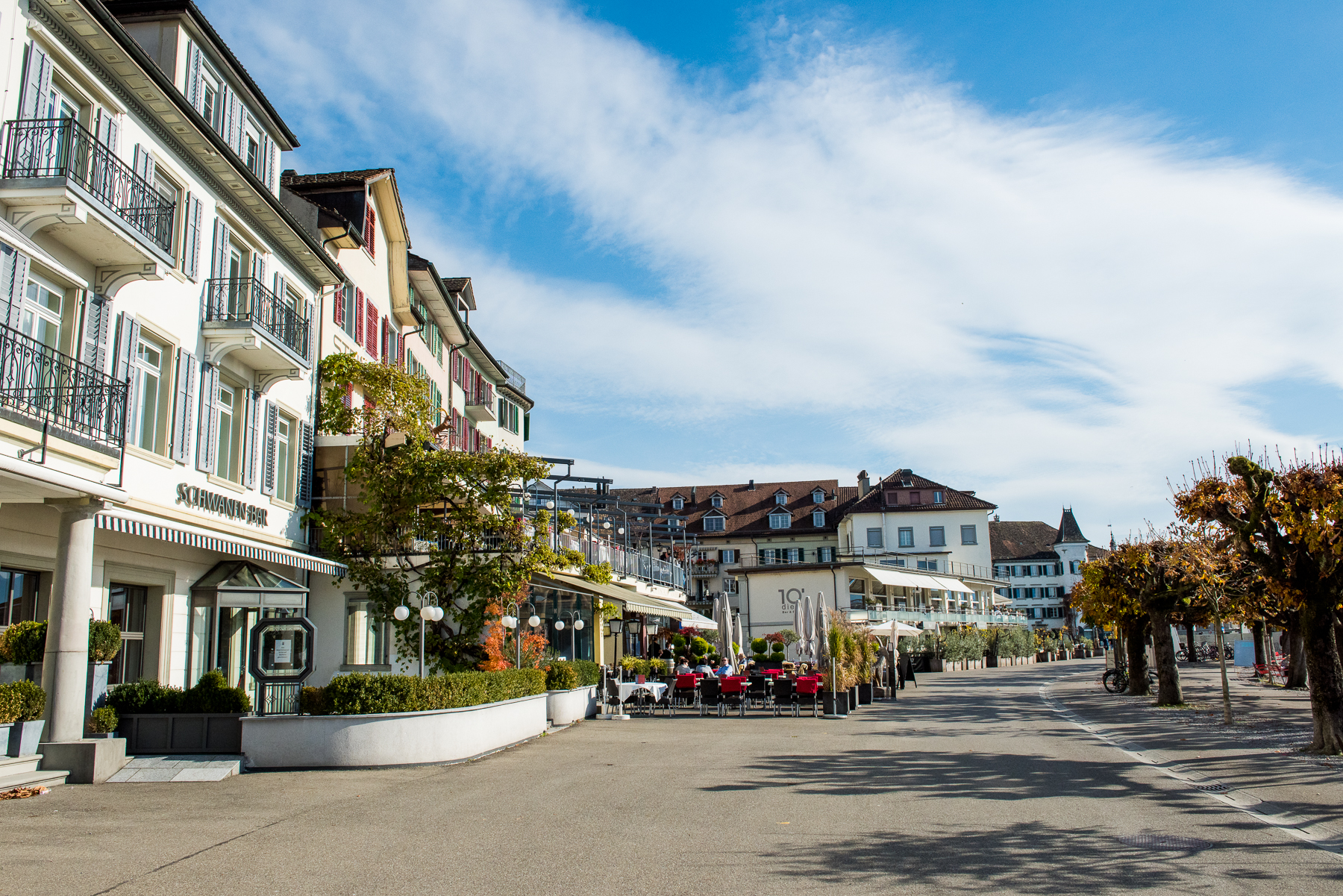
Format Requirements
Requirements for this format include:
- A symposium must have representation from at least two different institutions.
- 1 chair, at least 3 (and maximum 4) paper presentations and 1 discussant
- Total time allotted to a session: 90 minutes (at least 15 minutes MUST be set aside for discussion with the audience as part of the symposium)
If your symposium involves more than 4 presenters, you may create symposia for two sessions with up to 8 presenters. Submit as Symposium I and Symposium II
Keep in mind
Enter a full name and affiliation for each author of your paper. Please keep in mind that:
- Symposia must be organized and submitted as a group of presentations.
- A chair and a discussant are required.
- Symposia must have representation from at least two different institutions.
- While inviting people to participate in your Symposium, please clearly communicate to them that they are not part of the official IAIR Invited Program and that IAIR will not reimburse their expenses.
To ensure consistency in formatting, all proposals are to be submitted via the online abstract submission form. The maximum length for abstracts is 500 words.
Role Descriptions
- Chair (required): A Chair enters all information for the symposium. The Chair also organizes and directs the symposium session, introduces the presenters during the oral portion of the session, and ensures that time limits are strictly observed. The Chair should be prepared to lead, stimulate, and coordinate the open discussion with the audience. The chair may also present a paper.
- Discussant (optional): The role of a discussant is to comment on the papers included in the symposium, drawing on their own expertise.
- Author 1 - 4: Paper presenters
Integrative Statement and Abstract:
- Prepare an integrative statement that summarizes the nature and significance of the proposed topic. The integrative statement should not be more than 500 words long. Add the name of the discussant in the Abstract section.
- Prepare an abstract for each paper to be presented, maximum 500 words each
To ensure consistency in formatting, all proposals are to be submitted via the online abstract submission form. The maximum length for abstracts is 500 words.
CFP Panels/Poster
Individual Paper and Poster Presentations
Individually submitted abstracts for paper presentations will be reviewed for scientific merit and a decision will be made to accept or reject it based on independent ratings by two reviewers. Highly rated individual papers will be considered by the Scientific Committee for presentation in a 90 minute Paper Session composed of up to 4 Individual Paper Presentations that are thematically related, each presented for 15 minutes. Individual papers that are highly rated but cannot be accepted for a Paper Session (either because there are not 4 related papers on the topic or the maximum number of paper sessions has been reached) will become Individual Poster Presentations if submitters have indicated that they would like to present the research as a poster if it cannot be presented as an oral paper.
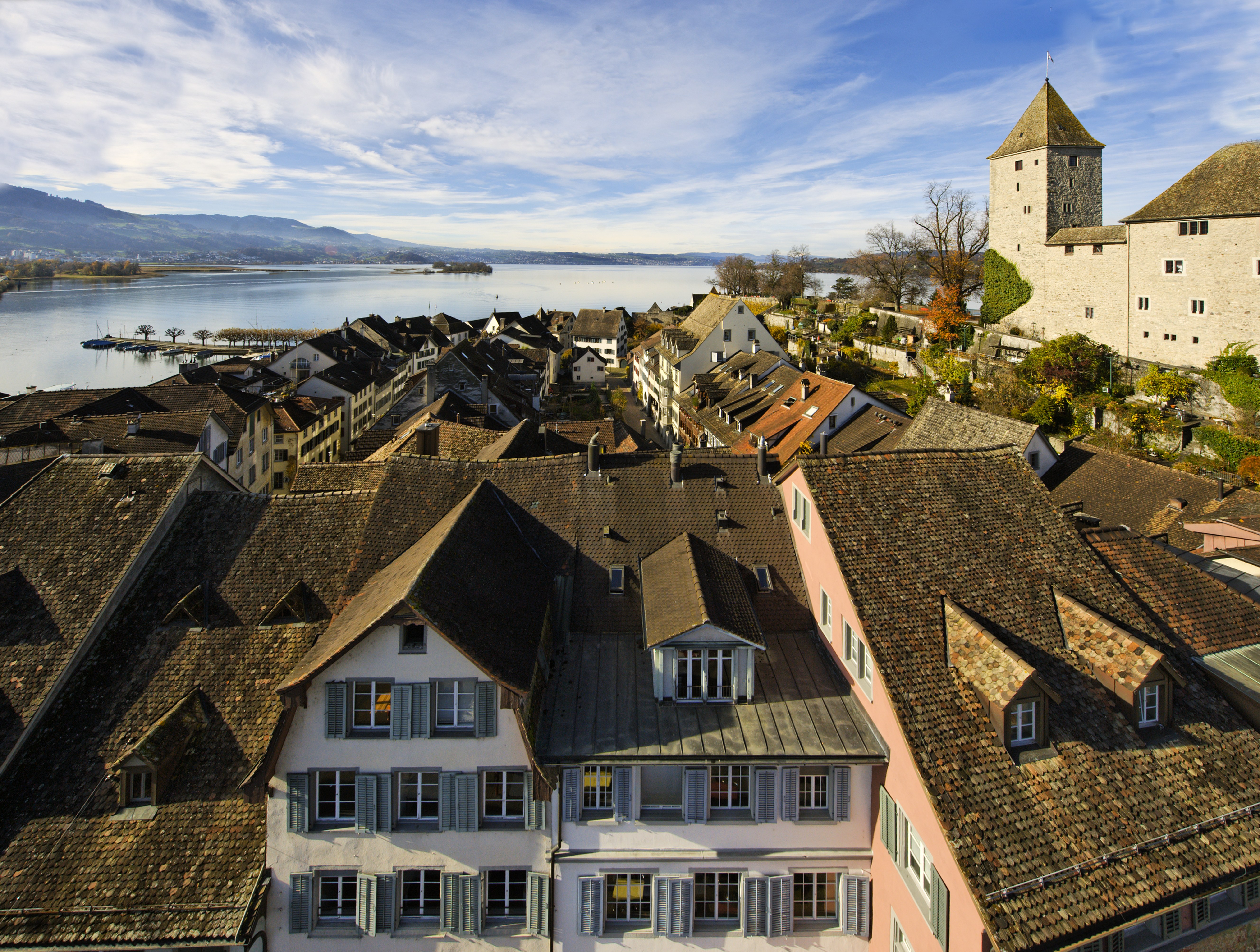
Submission details
Posters are individual, free-standing research presentations. They are the appropriate format when material can be explained briefly, is suited for graphic or visual presentation, and/or the presenter would benefit from high levels of interaction and discussion.
Presenting Roles
Individuals may submit proposals for up to two presentation roles. Presenting roles are defined as:
- First author of a symposium paper
- First author of an individual poster or paper
- The roles of Chair and Discussant do not count as presenting roles
- A chair of a symposium making a presentation counts as an author.
- Any role in the Invited Program does not count as a presenting role
Submission Instructions
Submission Instructions for Individual Papers and/or Poster Presentations
- A title for your submission with no more than 60 words.
- Enter a full name and affiliation for each author of your paper.
- An abstract with a maximum of 500 words.
- Use standard reference citations (last name, year) and do not include a reference list.
- Indicate whether this is a poster or an individual paper presentation.
- if you will be willing to present an individual paper as a poster if your submission is not accepted as a paper.
To ensure consistency in formatting, all proposals are to be submitted via the online abstract submission form. The maximum length for abstracts is 500 words.
Deadlines
Deadlines to be noted are:
September 15, 2021
Early submission of group symposia/panel/workshop abstracts (priority will be given to well-developed panel/research report sets [usually 4 papers] or workshop plans that fit 90-minute time blocks, organized around a relevant theme) (notification by October 15)
December 15, 2021:
Submission of further symposium, individual paper, or poster abstracts (notification by December 15).
Conference size will be limited by the Scientific Committee to around 200 participants, aiming to select quality symposia/papers that advance our science and practice to expand the reach of our fields toward more effectively enhancing intercultural relations across global boundaries.
Important Dates
Important Dates
15th
Oct. 2021
Fellow Day proposals
15th
Nov. 2021
Paper/Poster submission #1
15th
Dec. 2021
Paper/Poster submission #2
Rapperswil-Jona
Switzerland
Switzerland is an exciting place for an intercultural conference. It has a federal structure and consists of 26 cantons (federal states) with a total of 4 official national languages (German, French, Italian, Romansh). Switzerland is a multicultural society of approximately 8 million inhabitants, about 25% foreign passport holders. More than 40% of all children born in Switzerland result from bi-national partnerships. As a politically neutral country, Switzerland hosts many international organizations like the United Nations or International Committee of the Red Cross (ICRC), and is popular as a venue for political negotiations. Switzerland also has been ranked as the world’s most innovative country for the 10th year in a row by the United Nations Global Innovation Index (GII).

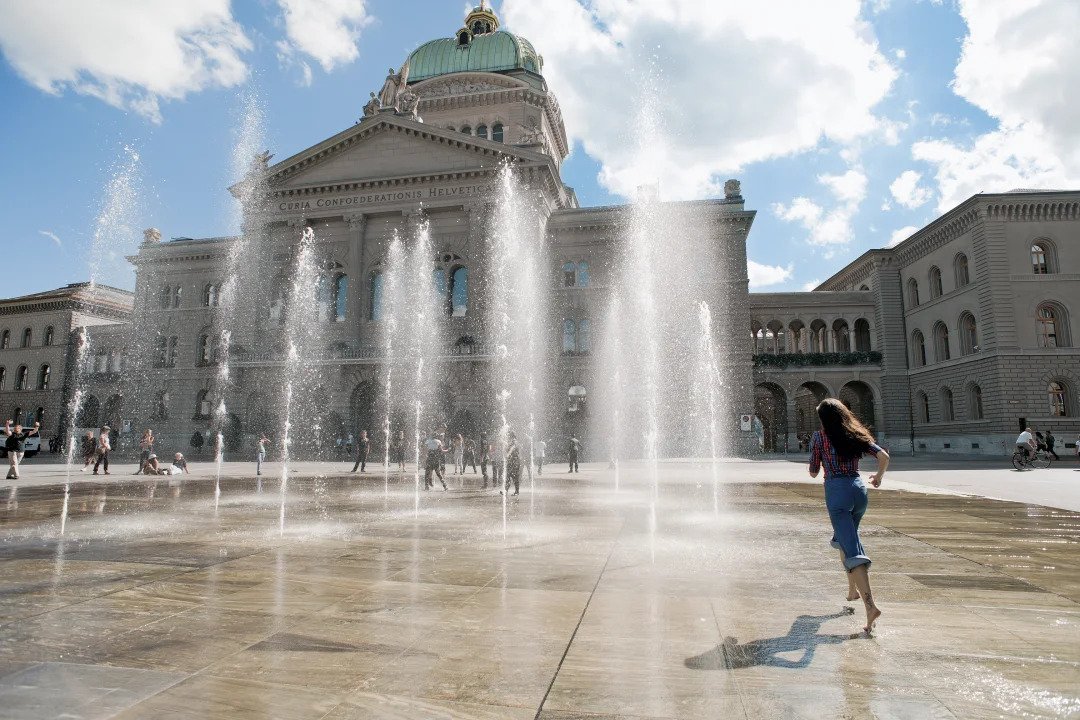


Rapperswil-Jona
Rapperswil-Jona (in the canton of St. Gallen), known as the "City of Roses", is a picturesque town rich in tradition dating back to the 12th century. Its historic buildings, the castle and the harbor promenade convey a Mediterranean feeling. At the same time, Rapperswil is also a place of innovation and shaping the future. At Eastern Switzerland University of Applied Sciences exciting technical innovations for the 21st century have been developed by dedicated applied researchers. The Drone Grand Prix with the world's best drone pilot teams regularly makes a stop in Rapperswil. This mixture of past and future makes this city so attractive that even Roger Federer plans to settle here. If you want to learn more about Rapperswil-Jona, please click the button below:
Learn moreEastern Switzerland University of Applied Sciences (OST)
Eastern Switzerland University of Applied Sciences (OST), established in 1972, focuses on applied research and the education of “reflective practitioners” for a broad range of disciplines. OST is the university of applied sciences for the six cantons of Eastern Switzerland and the Principality of Liechtenstein. It serves as the region's educational hub, with around 3,800 students in six departments, 1,500 professionals in executive education, and more than 1,000 ongoing research projects. The Campus Rapperswil-Jona is said to be one of the most beautiful university campuses in Europe, directly located on Lake Zurich with an excellent infrastructure for creating powerful learning environments.

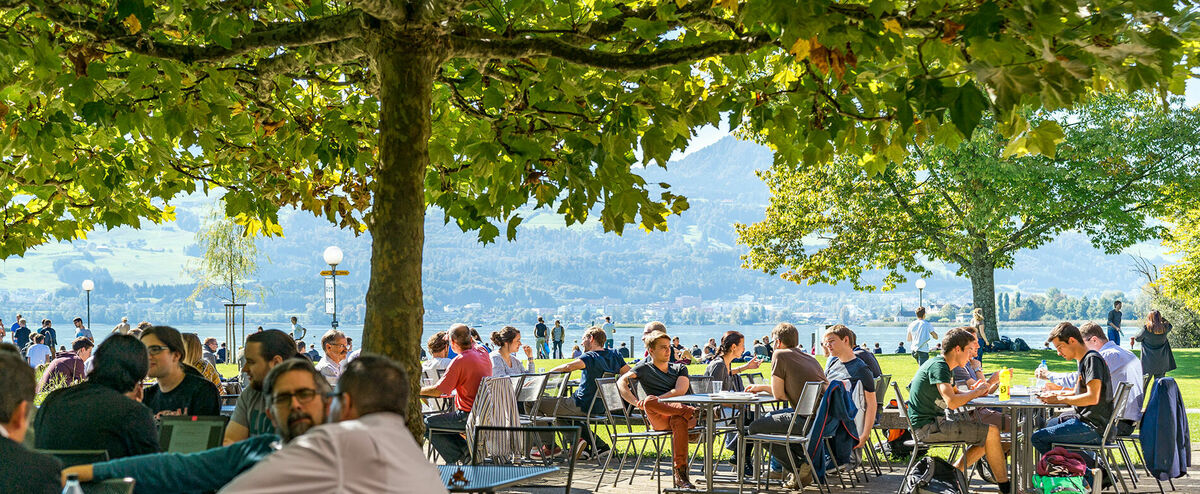
Hotels
Hotel Booking Information
We have already reserved room allotments at the hotels in Rapperswil, which you can book using the reference below. Most of the hotels are within walking distance to the conference venue. For the Hotel Seedamm-Plaza we will also provide a shuttle service.

Moxy Hotel Rapperswil Rapperswil
Distance to OST
1 km
City Tax: 1 Adult/Night: 3,- CHF
Code for Booking: IAIR2022
Hotel Telephone: 0041 433 44 99 00
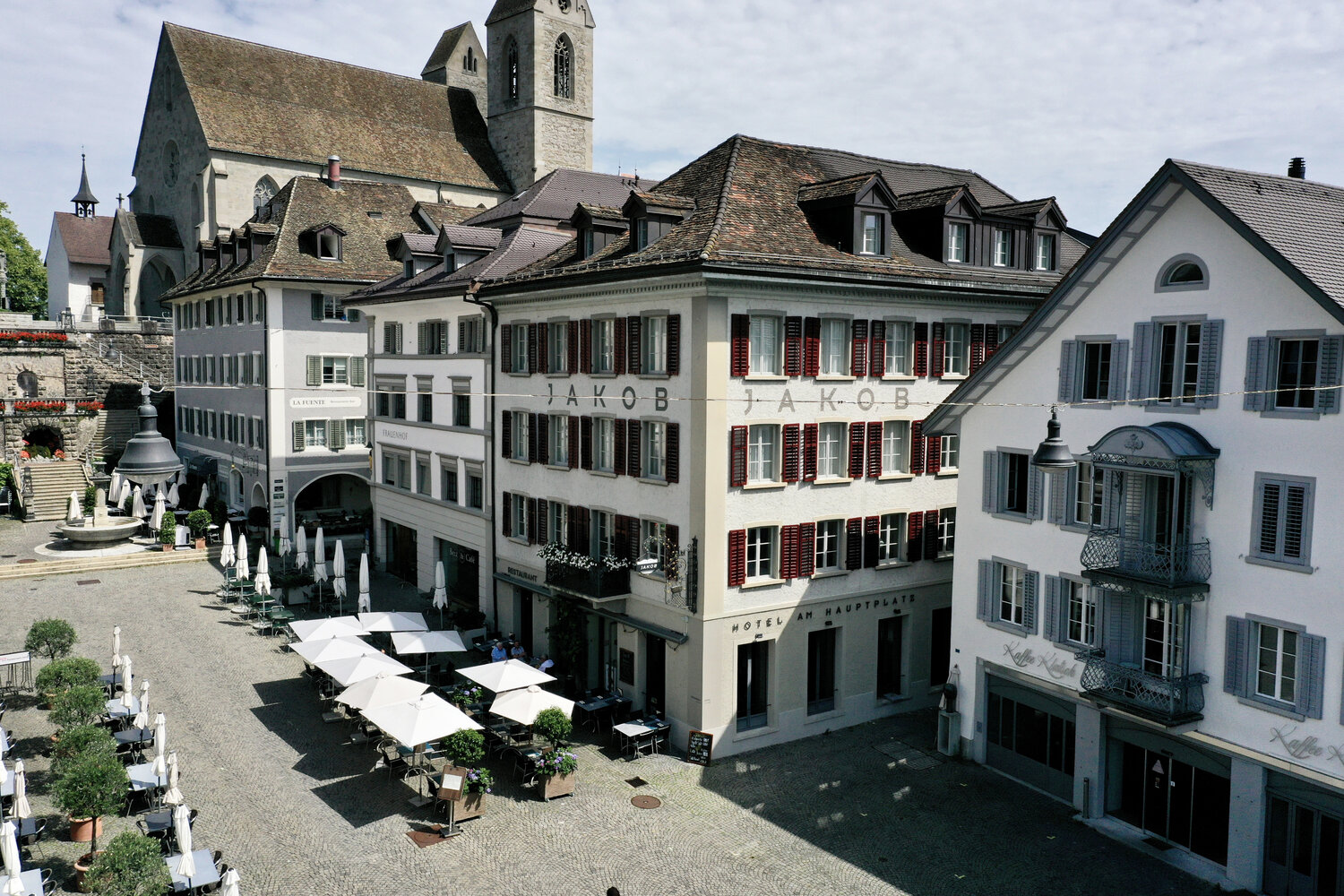
Hotel Jakob Rapperswil
Distance to OST
700 m
Single Room (CHF)
130
Double Room (CHF)
170 - 230
Price Single Room: 130,- CHF
Price Double Room: 1 Adult: 170,- CHF 2 Adults: 230,- CHF
City Tax: 1 Adult/Night: 3,- CHF
Code for Booking: IAIR2022
Hotel Telephone: 0041 55 220 00 50

Sorell Hotel Speer Rapperswil
Distance to OST
300 m
City Tax: 1 Adult/Night: 3,- CHF
Code for Booking: IAIR2022
Hotel Telephone: 0041 55 220 89 00
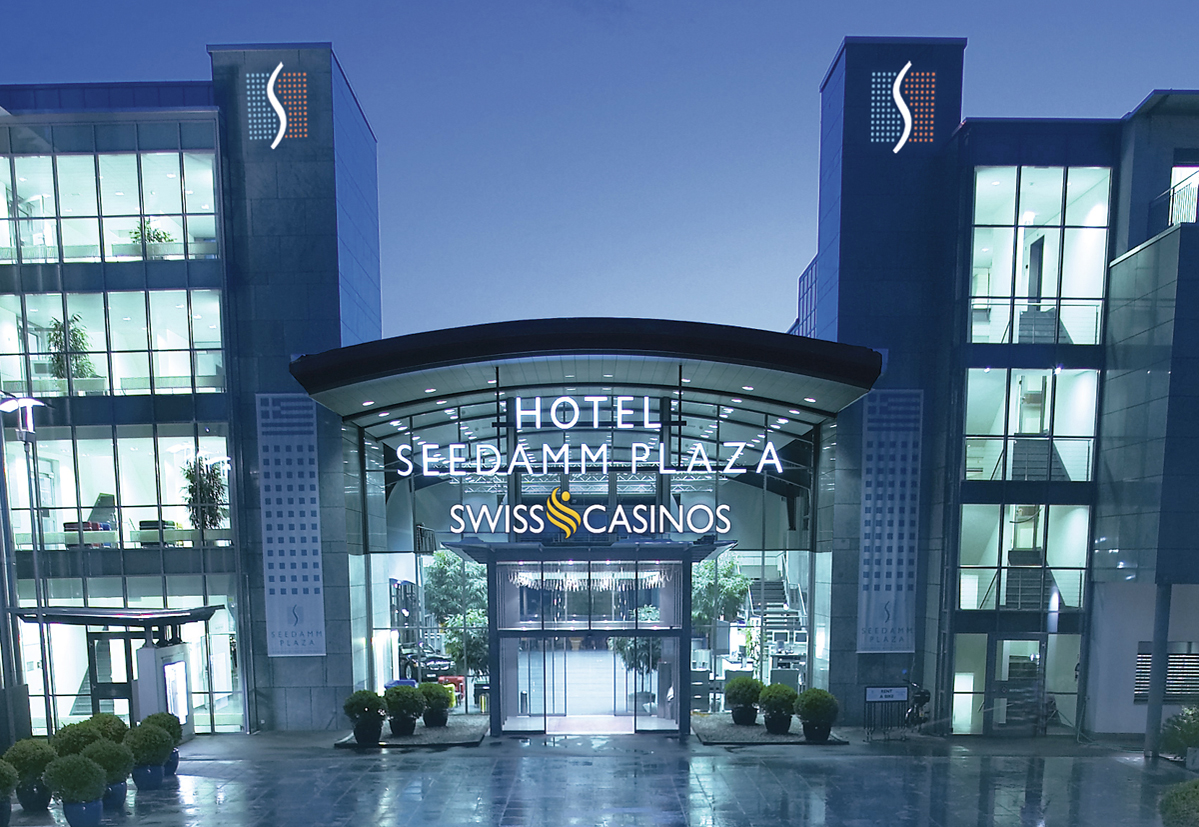
Seedamm Plaza Pfäffikon SZ
Distance to OST
5.9 km
City Tax: incl.
Code for Booking: OSTJAU
Hotel Telephone: 0041 55 220 89 00
Click here to BookDo you need financial support?
As everyone knows, conference participation in Switzerland can be quite costly. We have taken precautions to ensure that conference participation does not fail, and because of this:
For those who need financial support, e.g., because you are either a student without or with low funding, you come from a low-income-country, or you have difficulties to book one of the mentioned accommodations for other reasons, please do not hesitate to contact the conference organizers (
Visas and Travel

Directions
For the entry into Switzerland
In Switzerland
Rapperswil is very convenient to reach by train from Zurich main station or Zurich airport. The conference venue is located right next to the Rapperswil (SG) train station on the lake.
But beware: there are 2 Rapperswil in Switzerland. You have to go to Rapperswil (SG)! SG is the abbreviation for the canton of St. Gallen.
Switzerland is the country of public transport. Trains and buses are comfortable and punctual (yes, the stereotype is true!). They are cheap compared to cabs, and most importantly, the best ecological option.
- From Zurich Main Station it takes about 40min to Rapperswil (SG). You can use the lines S5, S7 or the S15. The S7 is the most beautiful, because it runs directly along the lake and offers a first tourist highlight
- From Zurich Airport it takes about 55 minutes by train to Rapperswil (SG). You can take different trains in the direction of Zurich main station and have to change trains once in the direction of Rapperswil.
Covid-19 Measures
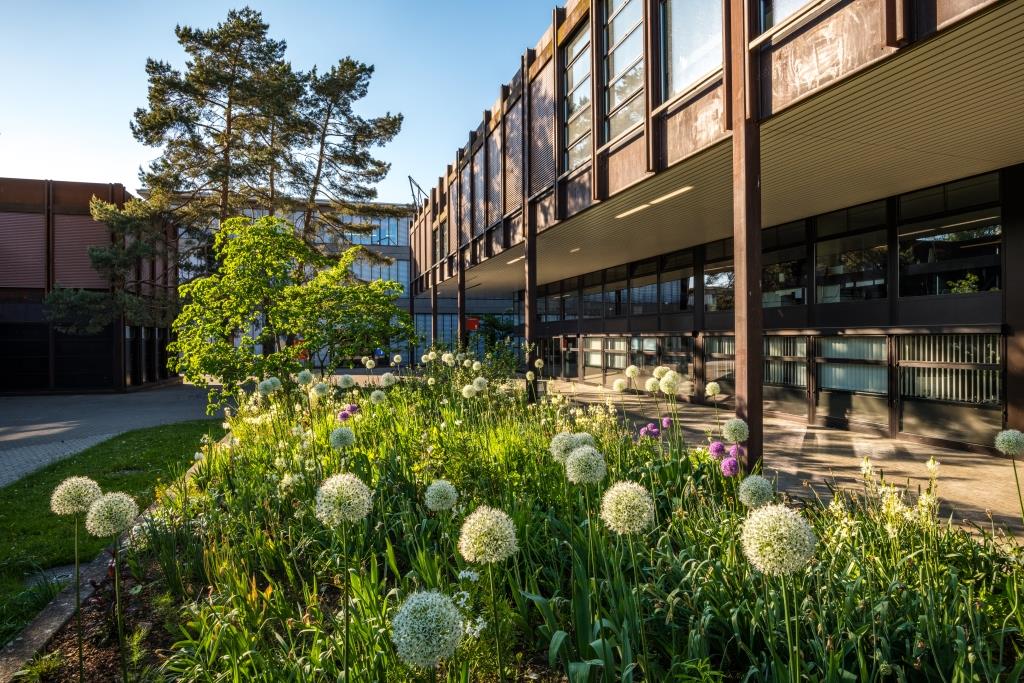
Statement on Inclusion, Safety, and Well-Being at Rapperswil Conference
Two months ago, I boarded a plane from Tokyo, my home for 25 years, to London to begin a sabbatical at University of Oxford and its COMPAS research institute (Centre on Migration, Policy and Society). This time has been filled with wonder as I have discovered fascinating cultural differences (and surprisingly many similarities) between England and Japan. One of the most striking relates to health and hygiene practices around COVID-19: specifically, the bugaboo of masking. When I left Japan, I would estimate that 90-95% of people in outdoor spaces wore masks, and indoors, that rose above 99%. As soon as I deplaned in London, it was immediately clear that these percentages were largely reversed: both outdoors and indoors, masks were hard to find. In a crowd of people, maybe 1 or 2 wore them, and in many cases, there was not a mask to be seen.
This year, I have lived in two societies that are polar opposites on the continuum of approaches to uncertainty and concomitant health practices in the pandemic—from near universal masking in Japan to minimize COVID transmission to a government-sponsored return to a “back to normal,” pre-pandemic lifestyle in the UK. This begs the question, “How do we hold a conference with people from societies with such different health practices, values, and norms when the consequences of such choices can have such profound experiences for the health of the attendees?” This is one of the burning questions at the heart of organizing IAIR’s Rapperswil conference, particularly for our organization that prides itself on inclusivity and community.
As president of IAIR, along with conference organizers, the Executive Council and the Board of Directors, I want to assure you that we are thoroughly committed to holding a conference that is inclusive and safe. Since the decision was made to hold an in-person conference, we have been continuously reviewing our plans to ensure that people from a variety of backgrounds feel comfortable and protected in Rapperswil. As you can imagine, this is a difficult balance, but one means of doing so is that conference organizers are making every effort to hold social events such as meals, gatherings, and parties in both indoor and outdoor spaces simultaneously. In other words, participants will be able to choose whether to eat and socialize indoors—where masking will be expected—and outdoors—where it will be optional. At events where this option is not possible, such as research presentations and keynote speeches, our indoor masking policy will be in effect (though speakers standing far from their audiences may shed their masks if they choose).
These procedures are designed to be sensitive to various prophylactic health practices, as inclusion is a central value of IAIR. We also deeply value community, and part of being in a community is taking care of our fellow members. By masking indoors, we can better ensure everyone’s safety, especially that of the immunocompromised and our senior members. As IAIR’s president, I want all of our members to feel at ease attending the Rapperswil conference in person, assured that attendees will cooperate to create an inclusive and safe space. Please join me, the conference organizers, and the Executive Council and Board of Directors in creating such an environment, welcoming everyone to the shores of Lake Zurich to enjoy an intellectually stimulating, joyous gathering of the IAIR community.
Sincerely,
Adam Komisarof, President of IAIR
Protective measures
Based on our commitment to the safety of all of our members, we strongly request the following:
Get vaccinated
Attendees are fully vaccinated and boosted against COVID-19 using a vaccine that is approved by the World Health Organization.
Isolate if experiencing symptoms
If you are experiencing any symptoms on any day of the conference that you suspect are indicative of COVID-19 or have had close contact with a person who has recently tested positive for COVID-19, you do not attend the conference until you receive a negative COVID-19 test.
Report in case of infection or close contact
If shortly before your departure for the conference you begin to experience COVID-19 symptoms or have close contact with a person who has recently tested positive for COVID-19, please contact the conference organizer about your registration.
Self test
If available in your home country, please bring a COVID-19 testing kit and check your result before entering the conference venue for the first time. If your test is positive, kindly contact the conference organizer about your registration.
Wear a mask
We will expect mask use, with masks covering both the nose and mouth, in all indoor meeting areas of the host institution, except when attendees are eating or giving research presentations during which they are standing on a stage far from other attendees. We will do our best to use or make available outdoor spaces for events such as meals and social gatherings, weather permitting, and mask use will be optional outdoors. During such events, those wanting to remain in mask-only conditions will be afforded space indoors to do so. This means, when possible, we will provide both indoor and outdoor spaces, simultaneously, for events such as meals and social gatherings.
Those considering registering for the conference who, for health or logistical reasons, may be unable to comply with any of these guidelines should consult with the conference organizers to discuss their concern or issue before completing the registration process.
Code of conduct

IAIR Conference Shared Values and Professional Conduct Statement
All attendees, speakers, sponsors and volunteers (hereafter participants) at our conferences agree with the following code of conduct:
We look forward to cooperation from all participants to promote a respectful, professional and inclusive environment. It is important that this conference becomes a shared, productive and secure place for everyone.
Etiquette Online-Conferencing
Make sure your full name shows up on the platform (Zoom;Teams etc.).
Be punctual for every session. Login at least 3–5 minutes before the scheduled start time if possible. This is particularly helpful if a platform update is needed.
Have your audio on mute, unless you are required to speak. Also turn on the video, when possible, it will help us feel each other’s presence and keep our conference more interactive and focused.
Avoid having a distracting background and wear appropriate clothes for professional meetings (just like during in-person conferences).
Attend online panels from a quiet area. It is important to secure a quiet place when presenting.
Limit distractions and avoid multitasking.
Use the chat function in accordance with the guideline from the presenter or panel organiser.
Personal/non-anonymous report
If someone abuses IAIR Conference Shared Values or if you believe you have been subject to any behaviour which is in contrary with IAIR Conference Professional Conduct Statement, you can start by speaking up right away to the person that engages in this behaviour. You can speak to them directly. If the behaviour occurs again, or if you are unable to deal directly with the person, please report the situation as soon as possible.
Anyone who wishes to report a violation of IAIR conference policy is asked to speak or write confidentially to Prof. Adam Komisarof, President of the International Academy for Intercultural Research (
(Prof. Anastassia Zabrodskaja
Prof. Elirea Bornman
In reporting your incident, you will have the opportunity to tell conference leadership the details of what happened. During the reporting process you may wish to bring an ally to support you, and rest assured we will handle your case with due diligence and respect. You will never be asked to confront anyone and should you wish, you may remain anonymous throughout this process.
Partner
Partner
"No road is long with a friend by your side"
The IAIR Conference 2022 is supported by:
Stiftung zur Förderung des Standorts Rapperswil-Jona der OST-Ostschweizer Fachhochschule
(Foundation for the Development of the Eastern Switzerland University of Applied Sciences - Campus Rapperswil-Jona)
Registration

Registration for the IAIR conference 2022 is open now!
You can register for the following options:
| Attendance mode / Status | Regular Fees |
|---|---|
| ON CAMPUS - IAIR Fellow/ Member | US$ 490.- |
| ON CAMPUS - Non-Member | US$ 590.- |
| ON CAMPUS - IAIR Student Member | US$ 150.- |
| ON CAMPUS - Student Non-Member | US$ 200.- |
| ONLINE - IAIR Fellow/ Member | US$ 200.- |
| ONLINE - Non-Member | US$ 250.- |
| ONLINE - Student Member | US$ 100.- |
| ONLINE - Student Non-member | US$150.- |
| IAIR Ph.D. Workshop – Regular Participants | US$ 50.- |
| IAIR Ph.D. Workshop – Participants from low income countries | US$ 30.- |
| IAIR Fellows Day (only for IAIR Fellows) | US$ 80.- |
Please note:
- The conference is planned as an in-person conference. We strongly encourage you to come to Rapperswil-Jona, Switzerland for enjoying the personal exchange we have missed so much during the last two years.
- ON CAMPUS fees include access to all academic sessions, keynotes, and the conference dinner as well as access to the recordings of the sessions on a virtual platform.
- Accomodation, travel expenses, etc. have to be covered by the participants.
- In terms of accommodation, Switzerland is a costly country. Therefore, we have an exclusive accommodation option for students and participants from low-income countries in shared rooms very close to the conference venue (around US$ 50/bed/night). Reservation is only possible via email to
This email address is being protected from spambots. You need JavaScript enabled to view it. . - The ONLINE option includes livestreaming from the academic sessions, presenting online and joining the discussion live. For a limited time, the recordings of the academic sessions and the keynotes will be available on a platform.
Cancellation and refund policy:
- In case of cancellation of a registration by 30 April 2022, we will refund the full fee (less bank transfer costs).
- in case of cancellation of a registration by 31 May 2022, we will refund 50% of the fee (less bank transfer costs)
- after 31 May 2022, no refund
- In case that you have registered for in-person attendance but are unable to attend in-person due to special circumstances (Covid19; health issues; travel restrictions etc.), we will refund the difference in the conference fee for the respective virtual option. Please send an email to
This email address is being protected from spambots. You need JavaScript enabled to view it. - In the event of a format change from an in-person conference to an online- conference, we will refund you the difference to the respective online option.
- We cannot accept responsibility for any costs incurred in connection with booking accommodation or travel to the conference in the event of cancellation. Please enquire about appropriate travel insurance and tour operator terms and conditions.
- Any other refund requests must be made in writing to the IAIR conference office at
This email address is being protected from spambots. You need JavaScript enabled to view it. and will be at their discretion.

Conference Attendees from Singapore:
If you are based in Singapore, you will not be able to use this form to make payment to IAIR due to restrictions imposed by the Monetary Authority of Singapore on payments to all US non-for-profits.
Please email Ken Cushner
| Attendance mode/Status | Fees |
|---|---|
| ON CAMPUS - IAIR Fellow/ Member | US$ 490.- |
| ON CAMPUS - Non-Member | US$ 590.- |
| ON CAMPUS - IAIR Student Member | US$ 150.- |
| ON CAMPUS - Student Non-Member | US$ 200.- |
| ONLINE - IAIR Fellow/ Member | US$ 200.- |
| ONLINE - Non-Member | US$ 250.- |
| ONLINE - Student Member | US$ 100.- |
| ONLINE - Student Non-member | US$ 150.- |
| Additional Conference Options | Fees |
| IAIR Ph.D. Workshop | US$ 50.- |
| IAIR Fellows Day (only for IAIR Fellows) | US$ 80.- |
{/tab-Level1}
The IAIR Conference 2022 is supported by:
Stiftung zur Förderung des Standorts Rapperswil-Jona der OST-Ostschweizer Fachhochschule
(Foundation for the Development of the Eastern Switzerland University of Applied Sciences - Campus Rapperswil-Jona)

